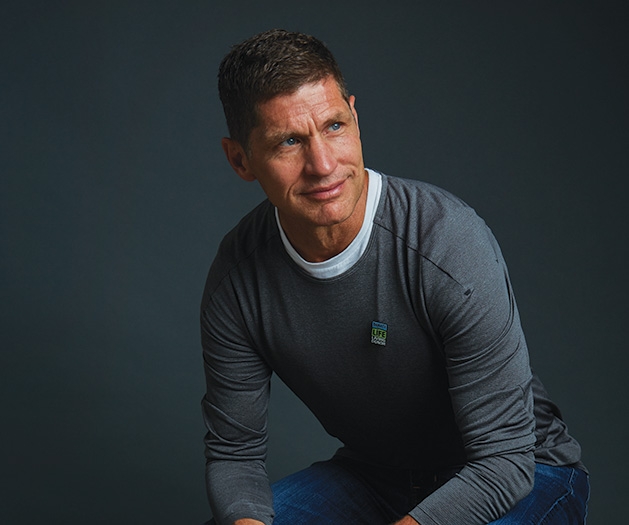
A year ago, we ran a story about Skip Sturtz, a Plymouth resident who had decided to be a donor in a nondirected kidney donation—donating a kidney to someone whom he did not know. Sturtz has since gone through the procedure and recovery, ran a marathon, and has learned the recipient's identity and is in contact with her. Sturtz shares his experiences with us.
Tell us about your recipient.
All I knew before the surgery was that it was a woman. I filled out a card at the pre-op with my email address, and if the recipient wanted to, they could communicate with me. Within a month, I heard from her. She has four children and seven grandchildren. Her surgery was at Mayo in Jacksonville, Fla. None of her children were a match to be a donor for her.
Have you met your recipient?
No. In March, I asked her if she wanted to meet, and she said yes. We set a tentative date in September, but then she got back to me that she was going to be [out of the country]. We talked about some other dates, but then she always said that she was going to be doing something. And then it occurred to be that she was too busy to meet—she’s out there enjoying her life, which is what I wanted to happen for her.
So you’re in touch with her?
I wished her a happy Mother’s Day, I heard from her on Easter. We recognize each other on significant days. We’re definitely going to meet, but I’m thinking it would be better to meet closer to our anniversary [of the kidney donation] in November.
What’s the process of getting the kidney to the recipient?
By 10 that morning, my kidney was on a Delta flight from Minneapolis to Jacksonville. It flew in the cockpit. There’s a very long chain of command for what happens to the kidney and who is responsible for it. Once it’s on the plane, it’s the pilot, and when it lands, the pilot hands it off to the driver. Within 45 minutes of the landing, her surgery started.
How did your recipient do after her surgery?
She’s doing great—she’s walking two miles a day, living life and doing all these things she couldn’t do for a while. She had been on dialysis three times a week.
How was your recovery?
It kind of became this marathon mentality—it wasn’t that bad. They numb the incision area and it’s numb for six months. That’s worn off now and I don’t feel anything.
Did it hurt?
I took Tylenol for two weeks, and then at week three, I walked the Turkey Trot 5K and ran the last about 100 meters. Within the week that I donated, I walked two miles at the Plymouth soccer dome.
How do you feel now?
Honestly, I don’t notice a single difference physically. And I feel a great sense of fulfillment, moving from success in the corporate world to a more purposeful life.
The 31 years of … career accomplishments matter little to me anymore, because donating a kidney will never become a dusty plaque on the wall. It’s a … spiritual sense of joy … and it’s always going to live with me now. There have been so many opportunities to tell my story and become an advocate to help educate people that when you “share your spare” you’ll be perfectly fine. It’s truly as advertised—you only need one. And the one I have left is more than capable of doing what two did. And your life expectancy doesn’t change.
When you sign up, in the back of your head, you want a feel-good story about where your kidney might go. But you have to be prepared if your recipient doesn’t want to meet you.
It’s hard for me when people tell me I was courageous or brave. I’m not a hero—I love being a living example of what one human can do for another. I have absolutely no regrets.









